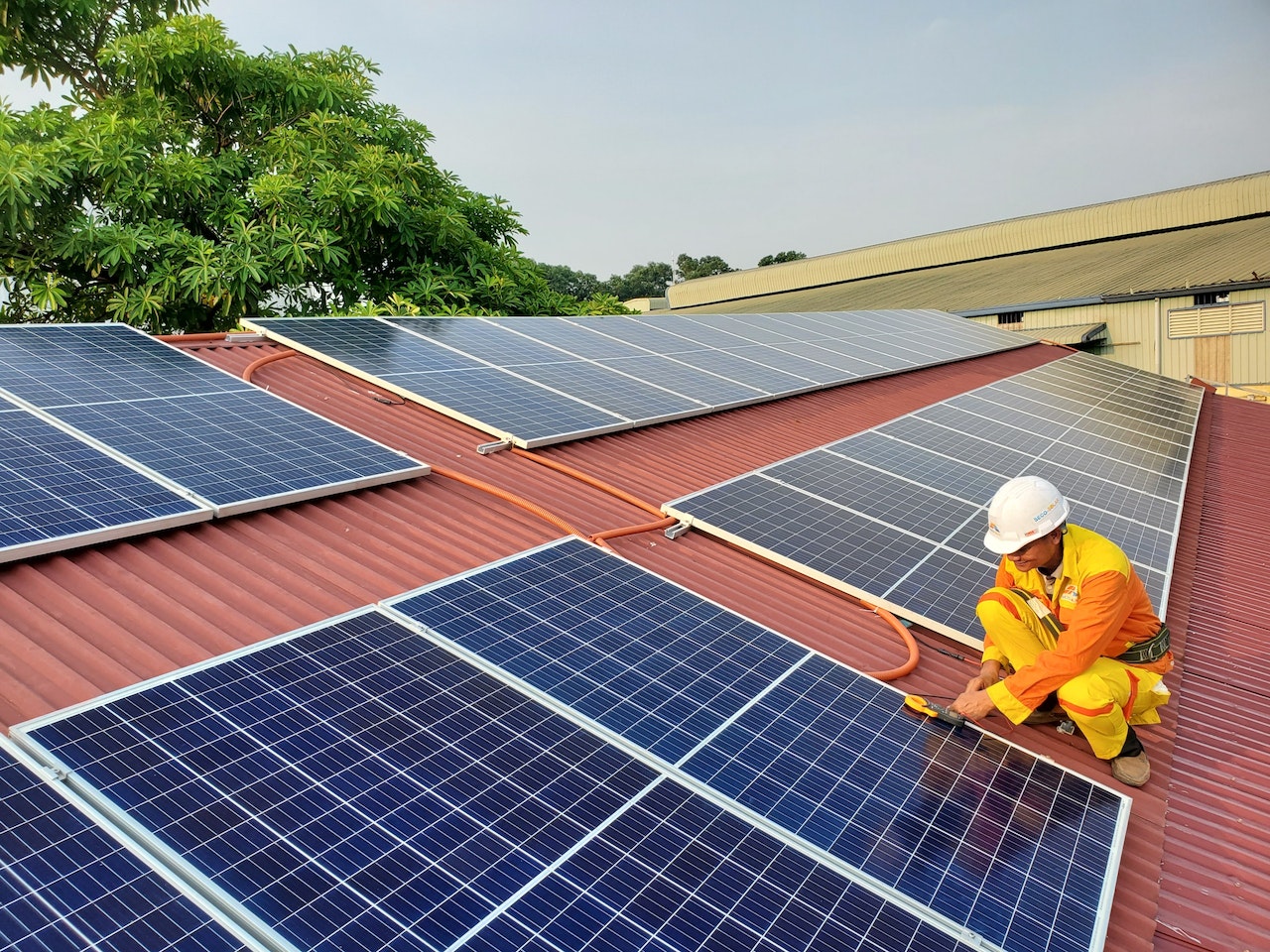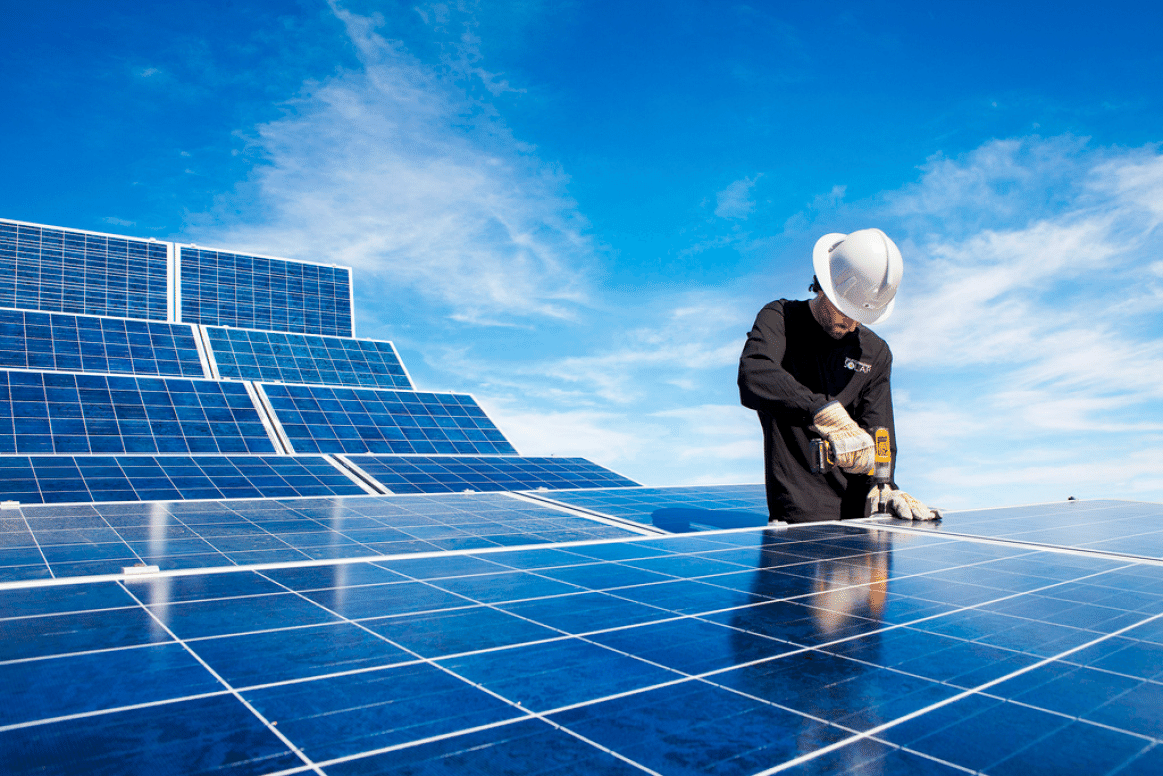Solar Photovoltaic Systems for Enterprises: Cost-Effective Alternatives for Your Energy Needs
Exactly How to Select the Right Solar Power Installation for Your Energy Needs
Selecting a suitable solar power installment needs a systematic method that starts with a clear understanding of your energy consumption patterns and awaited future requirements. Factors such as the type of solar innovation, setup expenses, and offered rewards play pivotal functions in making an informed decision - solar photovoltaic. The choice of a qualified installer can not be overlooked, as their experience can significantly affect the efficiency and longevity of your system. As you weigh these factors to consider, you may discover that the appropriate course is not always one of the most obvious one.
Assess Your Power Needs
Evaluating your power needs is a vital initial step in the solar energy setup process. Understanding your current and future power consumption will guide the style of a reliable planetary system customized to your requirements. Begin by analyzing your energy costs from the previous year to establish your ordinary monthly power usage, commonly measured in kilowatt-hours (kWh) This data will certainly offer a structure for computing the size of the solar system you might require.
Consider seasonal variations in energy usage, as certain months might require more power due to heating or cooling needs. In addition, review any planned adjustments in way of life or property, such as the acquisition of electric cars or home developments, which may raise your energy needs in the future.
Once you have an extensive understanding of your power intake, you can figure out the ideal solar ability needed to meet those requirements. This analysis not only helps in sizing the solar installment yet additionally notifies choices regarding energy storage space remedies and potential grid link requirements. solar photovoltaic. Ultimately, accurately gauging your power requires makes sure that your solar energy system runs efficiently, delivering the benefits of eco-friendly energy in placement with your usage patterns

Evaluate Solar Technology Options
When considering a solar energy installment, it is important to assess the numerous solar technology alternatives available to ensure the system straightens with your power demands and budget plan. The primary modern technologies consist of monocrystalline, polycrystalline, and thin-film solar panels, each offering distinctive advantages and drawbacks.
Monocrystalline panels are understood for their high effectiveness and efficiency in limited area, making them suitable for property installments with less roofing area. They often tend to be a lot more expensive. Polycrystalline panels, while a little much less efficient, are generally more affordable and can be a great selection for bigger installations where space is not a constraint. Thin-film photovoltaic panels are lightweight and versatile, optimal for non-traditional surface areas, however they normally have reduced efficiency and call for even more space to generate the very same power result.
In enhancement to panel kinds, take into consideration solar inverters, which convert the direct present produced by the panels right into alternating existing for home use. String inverters, microinverters, and power optimizers each have one-of-a-kind advantages that can influence system efficiency. Assessing these options will aid you make an educated choice that meets your power requirements efficiently.
Consider Installation Costs
Comprehending installation expenses is crucial for anyone taking into consideration a solar energy system. These prices can differ substantially based upon numerous factors, consisting of system dimension, kind of panels, and setup intricacy. A regular residential solar setup might range from $15,000 to $30,000 prior to motivations, which can be a considerable upfront financial investment.
To accurately analyze installation expenses, it is important to acquire in-depth quotes from multiple solar providers. These quotes ought to break down the prices of tools, labor, allows, and any type of additional accessories needed for the installment. Pay attention to the quality of materials being used, as higher-quality panels my site and inverters can result in far better performance and durability, potentially countering higher initial costs.
Furthermore, consider the long-term effects of installation expenses. A less costly setup might save money in advance but can result in greater maintenance expenses or reduced energy manufacturing over time. It is also a good idea to review funding alternatives, such as solar loans or leases, which can influence your overall economic dedication.
Research Study Resident Incentives
Discovering regional rewards can significantly affect the overall expense of a solar energy setup. Lots of regions offer a range of monetary motivations targeted at promoting renewable resource use, making solar energy more easily accessible and economical for homeowners and companies alike.
These incentives might include government tax debts, state rebates, and regional energy business programs that provide money incentives or internet metering choices. For example, the Federal Investment Tax Credit Report (ITC) enables you to deduct a substantial percent of your solar installation expenses from your federal taxes. State-specific rewards can further improve these savings, often in the kind of direct cash discounts or tax obligation credit reports.
In addition, some city governments might provide real estate tax exceptions for solar installments, guaranteeing that your financial investment does not raise your home tax obligation liability. Researching these rewards can discover considerable cost savings, which can influence your decision on the size and kind of solar system to install.

Choose a Trustworthy Installer
Picking a reputable installer is crucial to making certain the success and long life of your solar power Related Site system. The setup procedure dramatically influences the performance and efficiency of your solar panels, making it essential to pick a contractor with a tested track document.
Following, verify the installer's qualifications, including licenses, certifications, and insurance coverage. A trustworthy installer must hold accreditations from identified organizations, such as the North American Board of Certified Power Practitioners (NABCEP), suggesting a high level of knowledge. In addition, ask about the installer's experience with similar jobs, especially in your location, as local environment and regulations can affect installation methods.
Request numerous quotes and compare them not only on rate but likewise on the quality of equipment and guarantees supplied. A trustworthy installer must provide transparent info concerning their product or services, aiding you make an informed decision. By spending time in picking a reliable installer, you will certainly enhance the general effectiveness and durability of your solar power system.
Final Thought
In conclusion, selecting the suitable solar power setup demands a thorough assessment of energy needs, an understanding of readily available solar technologies, and a careful consideration of installation costs. Investigating regional rewards can boost economic advantages, while selecting a trustworthy installer guarantees top quality handiwork and integrity. solar photovoltaic. By carefully analyzing these variables, people can attain an optimal solar option that satisfies both current and future energy needs, inevitably adding to lasting energy techniques and price financial savings gradually